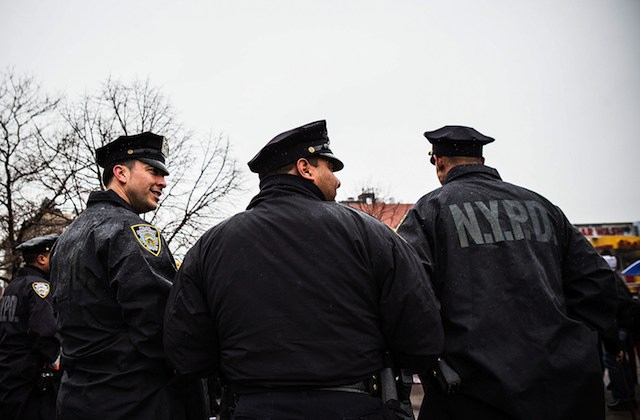While cops and civil rights advocates tussle over stop-and-frisk in the courts, and experts debate its efficacy, researchers are tracking something else: stop-and-frisk’s impact on the mental health of young men. Their findings suggest a harmful link.
In a phone survey of 1,261 New York City men between the ages of 18 and 26 conducted between September 2012 and March 2013, those who reported more interactions with police also reported experiencing higher levels of trauma and symptoms of anxiety. Their findings were published last week by the American Journal for Public Health in an article named "Aggressive Policing and the Mental Health of Young Urban Men" authored by Columbia University professors Amanda Geller, Jeffrey Fagan, Bruce Link and Yale University professor Tom Tyler.
Among respondents, 85 percent had been stopped at least once in their lives, while 46 percent had been stopped in the last year. More than five percent of the men who responded said they’d been stopped more than 25 times in their lives. Those who reported more police contact experienced higher levels of anxiety and symptoms consistent with post-traumatic stress disorder, even when controlling for demographics and their own criminal histories. Young black men were disproportionately stopped and frisked by police, and researchers found that they experienced symptoms of trauma at higher rates than non-black respondents. Researchers say theirs is the first study to examine the mental health impact of stop-and-frisk by surveying the population most directly impacted by the practice.
"Most of the police encounters our respondents described didn’t include an arrest or incarceration, yet they still reported associated mental health symptoms," Geller, a professor of sociomedial sciences, said in a statement. "This tells us that even the low levels of interaction that many urban residents experience may have consequences."
The researchers are careful to say that their findings don’t prove a causal link between intrusive stop-and-frisk policing and the corrosion of young men’s mental health, yet add that like others who have found that criminal justice practices can pose a threat to people’s physical and mental health, "[o]ur findings suggest that any benefits achieved by aggressive proactive policing tactics may be offset by serious costs to individual and community health."
